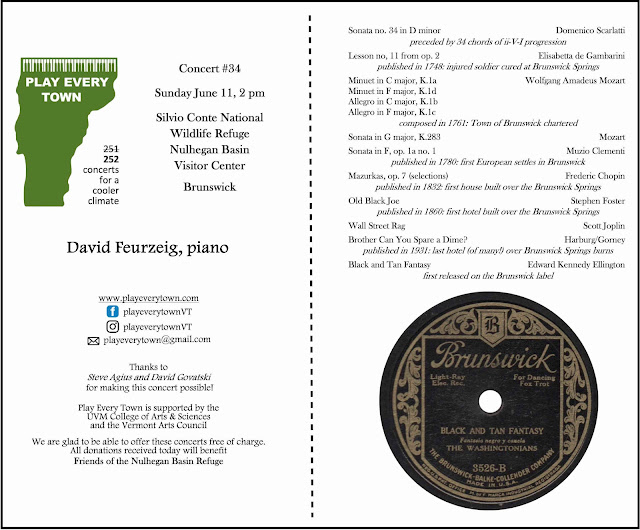One of my favorite aphorisms is “Hypocrisy is the deference vice pays to virtue.” Similarly, tokenism is the deference hegemony pays to diversity. I’m afraid that’s a pretty good description of my current programming of music by women.
I think about the hypocrisy saying a lot in relation the present political climate. A common take is that the recent surge in explicitly racist, antisemitic, anti-LGBTQ, and misogynist discourse doesn’t indicate a true shift, because attitudes don’t change overnight. We’re simply seeing out in the open what has been festering under the surface, unchanged since before the feminist and civil rights movements. Some go so far as to say this is a good thing, because now that hypocritical masks of tolerance are off, we can see more plainly what people are really thinking and what we’re up against. (“We” who believe women and minorities have full human rights.)
But hypocrisy can serve a beneficial social function. A mere decade ago, if you were pro-Nazi or pro-KKK or pro-male supremacy, in most contexts you had to at least pretend otherwise (or anyway soft-pedal it, in the case of male supremacy). I’d rather people weren’t those things, but given that many are, I’d rather be in a society where they’re ashamed to say so publicly and inhibited from forming conspicuous alliances with other bigots. Social license is just that: permission to say and do things that would otherwise be forbidden. I liked it better when racists didn’t have one.
My first program in this project, and a few since, have had no music composed by women. This bothered me. But I didn’t know a lot of music by women, I didn’t have tons of headroom to learn lots of new music, and the little I did know didn’t always fit well into my programs.
I also wanted to include music by Vermont composers. As I started looking for Vermont music, I was hoping I might accomplish a twofer, and happily, I was drawn to the music of Brandon composer Eve Beglarian. But I still didn’t have a ton of music-learning time over and above what I needed for the collaborative pieces (usually new to me) and the ever-new Scarlatti sonatas. So I learned a couple of wonderful but also easy and short Eve Beglarian pieces. One of them, the sublime and tender “Another Time”, has become a frequent closer, a good way to cap off a program as a sort of gentle cooldown following a more extroverted and showy piece as one expects at (or near) the end.
Then for my Brunswick concert, in which every piece was connected to a key date in Brunswick history (see program below), I was looking for a piece from 1748, and came across the sprightly op. 2 of Elisabetta de Gambarini, the first British women to publish a collection of original compositions. The “Lesson” op. 2 no. 11 is now my go-to opener. It’s flashier than the Beglarian pieces, though also short. So now most of my programs begin and/or close with short pieces by women, across a span of almost three centuries.
I’m keenly aware that it would be hard to find a clearer example of tokenism. I was explicitly looking for music by women. I chose a (very) few pieces, all short and not too hard to learn. And now I take pains to include them in most of my concerts.
But as I said in my opening paraphrase: Tokenism is the deference hegemony pays to diversity. I have a ways to go, and I’m planning to work more non-male-composed music into my repertoire. In the meantime, a couple of token pieces are better than nothing.
P.S. I should make something clear. “Tokenism” frequently carries the implication that the included thing is not up to snuff, and is there merely because it represents an underrepresented category. Not the case here! The Beglarian and de Gambarini pieces kick butt.

No comments:
Post a Comment